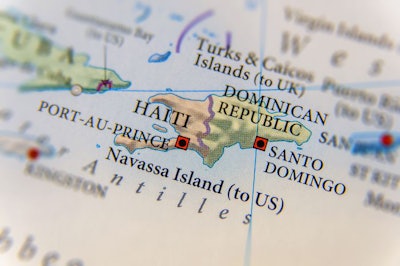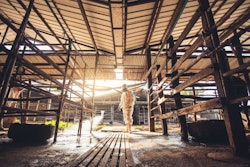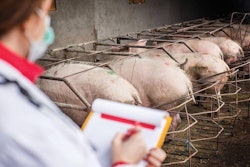
Animal and Plant Health Inspection Service working with Dominican Republic, Haiti and Puerto Rico to combat African swine fever
The U.S. Department of Agriculture’s (USDA) Animal and Plant Health Inspection Service (APHIS) has stepped up its surveillance and testing for African swine fever (ASF) virus in the Caribbean, according to Jack Shere, deputy administrator for veterinary services at APHIS.
Shere spoke October 13 during a webinar as part of the department’s ASF Action Week.
ASF was detected in the Western Hemisphere for the first time in 40 years in July 2021, when it was confirmed in pigs in the Dominican Republic. In September 2021, it was confirmed in pigs in Haiti. The Two countries share the Caribbean island of Hispaniola.
Shere said APHIS has increased ASF surveillance in both countries, as well as in the U.S. territory of Puerto Rico, where feral hogs present a problem.
“We’ve undertaken a plan … to eliminate the feral hogs in Puerto Rico,” he said.
He said many pigs that people had as pets in Puerto Rico were released or escaped during Hurricane Maria in 2017 and set up a breeding population.
“We have undertaken a plan and have practically eliminated those swine also,” he said. “In the U.S. Virgin Islands, we’ve eliminated the feral hogs that are there; we’ve undertaken the same project and are near elimination in Puerto Rico.”
However, Shere admitted that, in Haiti and the Dominican Republic, eradication of feral swine may not be possible.
“We’ve sort of pivoted in our idea of eradication to say, ‘Eradication may not be on the table. Perhaps we should pivot and look at measures we can use to tamp it down and provide greater mitigations in the United States,’” he said. “This will be a long-term project in the Dominican Republic and Haiti.”
Because of political, humanitarian and environmental crises in Haiti, Shere said combating ASF is not a priority there.
“They have told us they have no funding for ASF,” he said. “This is probably a problem in Haiti that does not rank highly in the list of problems that Haiti has to face. They have a lot of work to do on other social and economic issues in that country, and African swine fever is probably not high on the list.”
While communication with Haiti is difficult, in Puerto Rico, Shere said APHIS has started an outreach and information program, which includes webinars, social media, and radio and television ads, “to explain the disease and create an awareness among the people of what this disease looks like so that, should it get there, it would be reported quickly, and a foreign animal disease diagnostician could be dispatched to do the testing and make sure that the disease is detected early.”
















